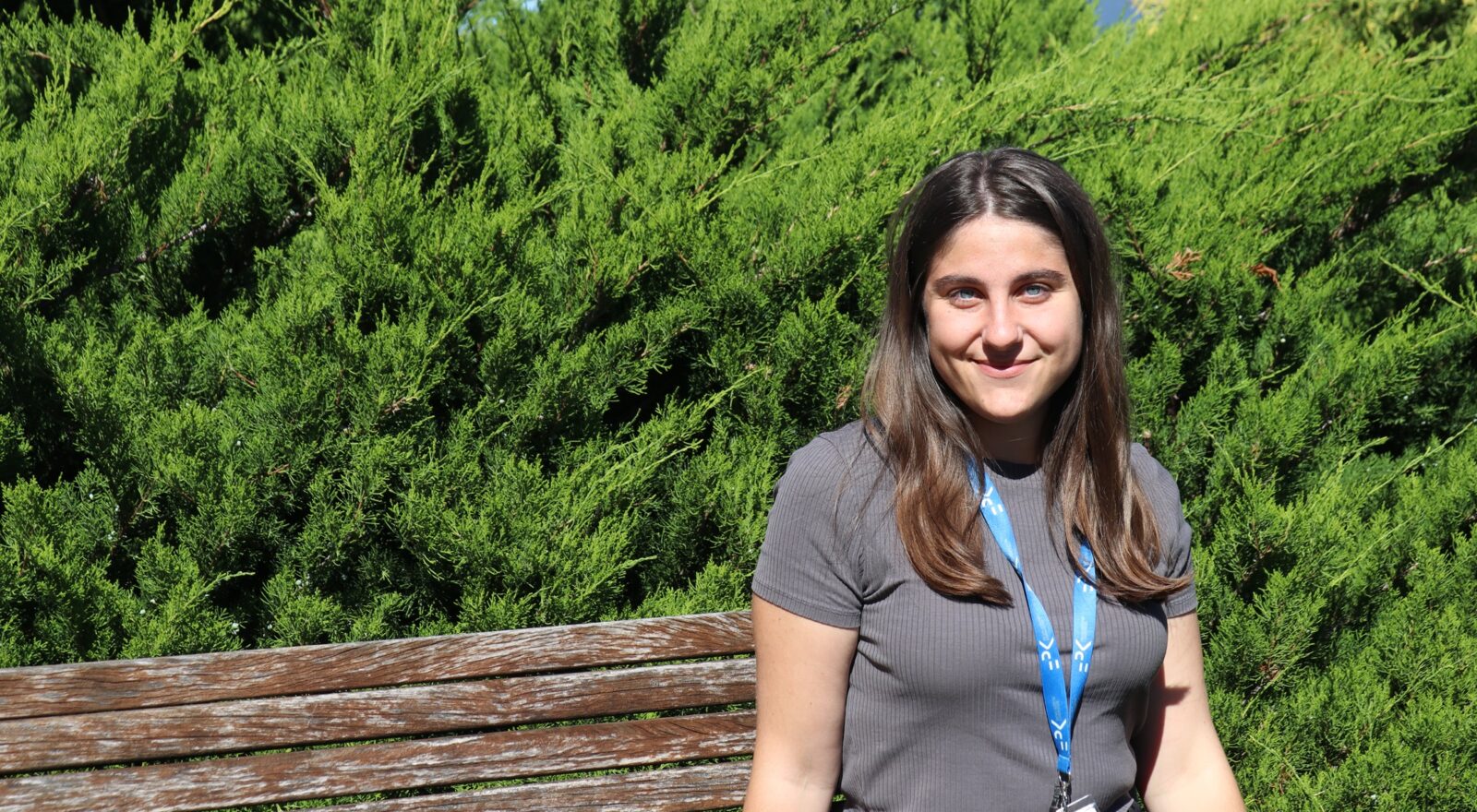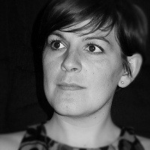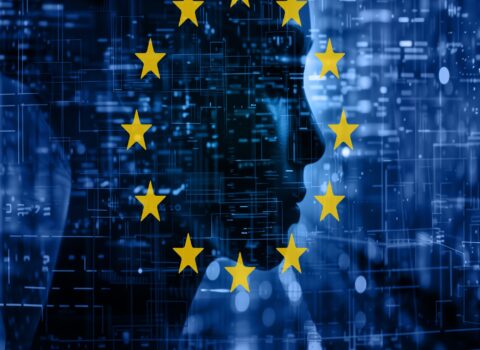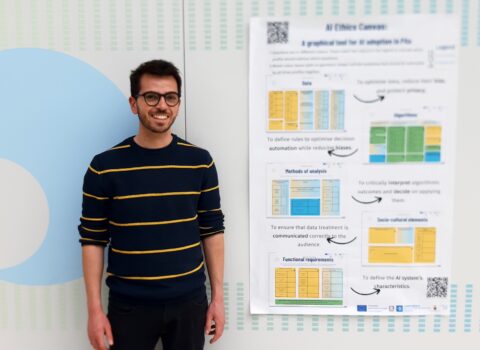
Between Law and AI: The Journey of Elena Della Valentina, a Young Lawyer at FBK
What could the study of laws and statutes have in common with a passion for the new applications of Artificial Intelligence? Elena Della Valentina, 23, a student in the master's program in Global Law Making and currently an intern at Fondazione Bruno Kessler (FBK), explains.
I
Her background already traces a clear and consistent path at the intersection of law, technology, and ethics. Originally from Venice, Elena chose to move to Trento, drawn by the university’s offerings and—she says without hesitation—by the presence of Fondazione Bruno Kessler, where she has already had three different experiences. The first was during her undergraduate degree, within the Intelligence Interfaces and Interactions (i3) Unit of the Center for Augmented Intelligence, where she participated in the creation of an annotated corpus.
After receiving her bachelor’s degree, she was offered admission to prestigious international universities such as the London School of Economics, Sciences Po Paris, King’s College London, and the University of Edinburgh. However, Elena chose to remain in Trento to join the new master’s course in Global Law-Making, focused on the legal aspects of ecological and digital “transitions” from a global perspective. “Universities abroad fascinated me, but my love for this city and what it has to offer won out. When Trento launched the new master’s course, it was a perfect coincidence. I felt that here I would find the ideal environment to continue my journey, with all the advantages of living in a city I fell in love with,” said the student.
And that’s exactly what happened. Thanks to the University, she was able to undertake a second internship at FBK, this time at the Digital Commons Lab of the Center for Digital Society, where she focused on regulatory analysis of the impact of the AI Act on public administration and its relationship with citizens. Her third internship, currently underway, is with the Corruption Prevention, Transparency, and Privacy Unit, still centered on the AI Act and its implications. “Each experience has given me new perspectives and strengthened my desire to contribute to this field with a critical mindset, attentive to ethics and responsibility.”
Elena, your academic journey has consistently intertwined law and science. When did you realize that this ‘borderland’ would become your professional focus?
“In high school, I didn’t yet know there was a field called ‘artificial intelligence law,’ but I knew I wanted to study something that allowed me to remain halfway between the humanities and the science worlds. Through various searches, I discovered Fondazione Bruno Kessler.
Over time, I became interested in Big Data, and from there, the step toward AI law came naturally. There wasn’t yet a formal academic offering in this area in Italy, but I felt that Trento was the right place to explore these emerging issues.”
Your first internship at FBK involved a well-defined project: the creation of an annotated corpus of terms and conditions of use. How did you find working with computer scientists and data scientists?
“It was a valuable experience. It allowed me to understand how a dataset is built from the ground up, which is then used to train an algorithm. Working in a team with people from diverse backgrounds taught me that technology is not built solely with technical skills—it also requires critical reflection on content and meaning. We analyzed real contracts, collaborating across disciplines. It was my first real encounter with applied research.”
You later worked on the AI Act. What aspects of the legislation would you like to learn more about?
The AI Act is an ambitious and complex text that seeks to anticipate the social and economic impacts of a rapidly evolving technology. It’s not just a set of rules—it represents a political and cultural choice. Defining what is “risky” or “acceptable” in the use of AI means asking ourselves what kind of society we want to build. This type of reflection is precisely what drew me to the field of AI law.
You’ve said that FBK’s presence influenced your decision to stay in Trento. What impressed you about the Foundation?
“The first thing that struck me was its ability to carry out applied research—research that is close to reality and society. I immediately sensed a very dynamic environment, with knowledgeable people who were also open to collaboration and exchange of views. Also, the fact that FBK is so rooted in the local area, in dialogue with the University and institutions, made me feel that there was real room here to conduct impactful research. That’s something not easily found in Italy, especially in emerging fields like AI law.”
Have you already chosen your thesis topic?
I am analyzing several ethical and legal implications related to the use of social robots in elderly care—a topic I find fascinating from many perspectives. These tools, which are already partly in use, will likely become more widespread in care facilities and even private homes. There are many implications to consider and monitor, and I believe it’s a particularly interesting area to explore.
Where do you see yourself in the future?
I would like to continue working in research and I’m also open to an academic career. I will almost certainly pursue a PhD and keep my options open for the future.
_________________________________________________________________________________________________
Elena Della Valentina is a master’s student in Global Law Making at the University of Trento, where she earned a bachelor’s degree in Comparative, European, and International Legal Studies in 2024, with a thesis titled “Chilling Realities: The Regulation of Facial Recognition Technologies in the European Union and the Chilling Effect.” She is primarily interested in the intersection between law and emerging technologies, particularly the legal implications of artificial intelligence.




